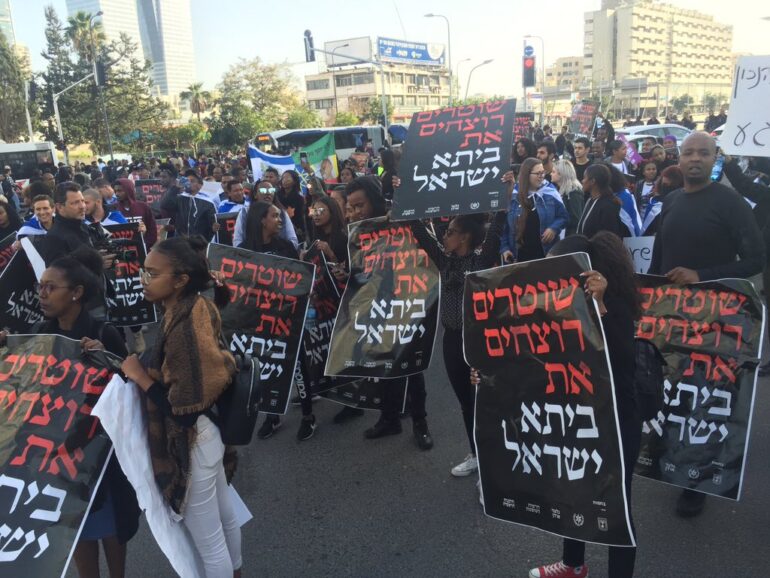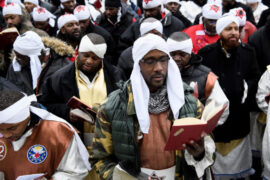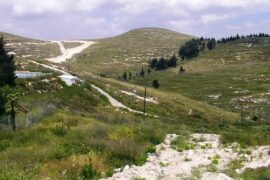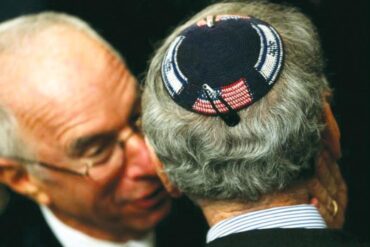Thousands of Ethiopian Jews and many allies demonstrated in Tel Aviv on Wednesday against police violence targeting their community.
The protest was in response to the murder of 24-year-old Yehuda Biadga, who had been shot by a policeman in Bat Yam two weeks prior.
Demonstrators carried Israeli flags and signs reading “Police are murdering Beta Israel” and “the police cover-up department.”
Organizers seemed careful to express their love for Israel and made it clear that their issue is only with the police.
“We have no other country,” one organizer shouted to the crowd.
“This country is wonderful. We don’t have a problem with the country, we have a problem with the police. They are against our community.”
Member of Knesset Ilan Gilon (Meretz), chairman of the Knesset lobby against police violence, criticized the behavior of the police at the protest.
“The police have only one role: to maintain public order and protect the citizens, not the other way around.”
“The first protest that took place in 2015, and the Palmur Report published since then, were supposed to bring about a change, but this is not the case,” he continued.
“We still see that the culture of whitewashing, silence, denial, and insensitivity of the police, which refuses to examine itself and its function time after time, persists and therefore I, we, are here to stand against violence and racism, for equality, solidarity and justice.”
While we can point to many factors responsible for bigoted attitudes between Jews in Israeli society, one factor that’s almost always ignored is westernization. The sectors of Israeli society that most identify with the West tend to be the sectors that have adopted the most racist attitudes against other Jews.
While it’s easy to criticize the ultra-nationalism of the Jews living in the West Bank, as well as how these Jews relate to their Palestinian neighbors, bigotry between Israelis from different Diasporas is for the most part non-existent in West Bank Jewish communities. In fact, in the most ideologically nationalist Israeli communities, it’s fairly common for families to have parents from different backgrounds.
In “western Israel” (of which Israel’s police force is a guardian), everyone is an individual. Israelis generally marry and interact with Israelis who’s families come from the same Diasporas while othering Jews of different cultural backgrounds.
But in “eastern Israel” where Jews are more collectivist and are consciously living the story of their people, Israelis from Europe, North America, North Africa, Ethiopia, India and the former Soviet Union all build families and communities together as equals.
The nationalism that exists in West Bank Jewish communities should be seen as healthier than the western individualism of Gush Dan. Yet that nationalism is still flawed and needs to expand until it also encompasses the gentiles of our society into a unified collective identity able to maintain our unique differences. Such an identity will mark the transition from Israeli nationalism to Hebrew Universalism.





